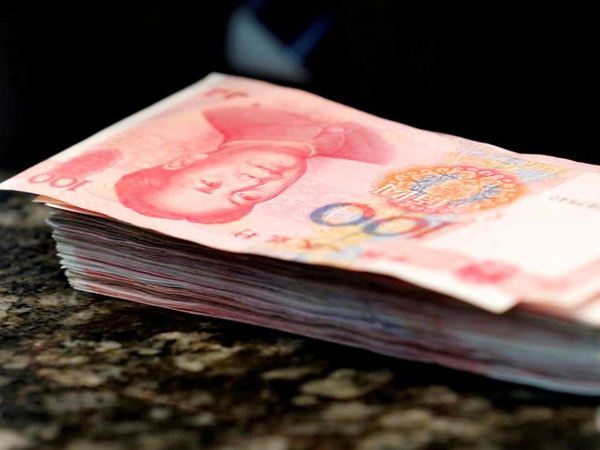The fall of the yuan despite best efforts of the People’s Bank of China speaks volumes of the kind of economic stability the Chinese Communist Party boasts of. Coming as it does in the run-up to the 20th Party Congress, it is not something President Xi Jinping would like as he prepares to get a third term of power.
Worse, the situation is also embarrassing because China always associates a strong yuan as evidence of its economic power being comparable to that of rival United States. The yuan fell to 7.2301 to the dollar, its lowest level since January 2008. One yuan was worth about 13.8 cents, down 15% from this year’s March high, Associated Press said.
The media paints a grim picture for the coming future: “What’s likely to be worse is the dismal picture for China’s economy next year. The World Bank has slashes its prediction for GDP growth from 5 percent in April to just 2.8 percent, following other financial institutions. In a developing economy like China’s, that feels like a recession to the public—and a failure to reach the 5.5 percent growth target set by the government.”
The yuan reached a 28-week and a 14-year low in the last week of September against the dollar after hikes in US interest rates made traders to convert money into dollars while looking for higher returns.
It is no consolation to the Chinese government that “a weaker yuan helps Chinese exporters by making their goods cheaper abroad, but it encourages capital to flow out of the economy”, raising costs for Chinese borrowers and “sets back the ruling Communist Party’s efforts to boost weak economic growth”.
A deputy central bank governor, Liu Guoqiang, held a video meeting with Chinese bankers and told them to “maintain the basic stability of the exchange rate,” according to a central bank statement.
In contrast to the Fed frequently raising interest rates this year, the People’s Bank of China has lowered interest rates to help push growth that that fell to 2.2% over a year earlier in the first six months of 2022 — less than half the official 5.5% target. The AP report said the yuan is allowed to fluctuate up or down 2% from its starting price each day in tightly controlled trading. That prevents big daily swings, but down days can add up to a big change over time.
It is reported that in order to shore up the exchange rate, the Chinese government even slashed the amount of foreign currency deposits Chinese banks are required to hold as reserves to 6% from 8%. That increases the amount of dollars and other foreign currency available to buy yuan, which should push up the exchange rate. But that could not stop the slide of the currency.
A number of factors are putting downward pressure on the yuan, also known as the renminbi.
While the Fed’s interest rate hikes are attributed to the yuan’s fall, it is also true that China’s own economic woes aren’t helping either. A depressed demand is stemming from a precarious real estate sector and disruptions from the country’s continuing zero-Covid politics. As a result, the Chinese central bank is forced to cut key interest rates to stimulate the stalling economy
So far, Chinese officials and analysts are putting a brace face in the face of a tumbling yuan. Western media reports say the Chinese are giving the impression that while the yuan is on track for a fall against the dollar, “it has actually held up relatively well against a trade-weighted basket of currencies”. As evidence of their confidence, they say that the yuan exchange-rate index calculated by China’s foreign exchange trading platform “shows the yuan sitting roughly at where it was at the start of the year”.
Other analysts at Chinese brokerages, according to these reports, caution that the importance of the yuan breaching the seven-dollar mark is “more psychological than it is substantive”.
These reports quote Ming Ming, the chief economist at Citic Securities, as saying: “The recent depreciation of the renminbi exchange rate is more, or excessively, reflective of the impact of the Fed’s policy tightening and the European energy crisis.”

